It is time for ‘the community’ to call a halt and take stock.
‘The community’ must make an urgent declaration that there will be no more meetings, arrangements or collaboration with the Government and the police until the abuse of power and the injustices being perpetrated by the State are brought to an immediate end.
What is to be done?
Individuals and organisations across ‘the community’ should agree a policy of
non-cooperation with government, its structures and post-insurrection
initiatives until such time that:
a) the courts stop denying bail and remanding people in custody for offences which would normally attract bail and stop imposing those draconian sentences upon people charged with involvement in the insurrection or with handling goods acquired during the insurrection
b) the police stop breaking down people’s doors and invading their homes in search of suspects and looted property
This means:
• not attending meetings with Theresa May, Ian Duncan Smith, Keith Vaz and other parliamentary bodies
• withdrawing from Police Consultative Committee meetings and police Independent Advisory Group meetings and not collaborating with the police in tracking down ‘rioters’
• campaigning against local authorities that have adopted policies to evict families for the involvement of any member of those families in the insurrection
After the Insurrection, there have been four main sets of responses, three of which have been totally predictable, those of the State, the police and the media. The fourth, the African ‘community’, has responded as if the way the other three dealt with the crisis could not be anticipated. What is worse is that as the State and its most visible arm, the police, hone their response, they are inviting and receiving the validation of sections of ‘the community’, including those that are otherwise critical of the many ways in which the State is abusing the fundamental human rights and civil liberties of those who were involved in the insurrection and many more who were not.
Time and again, ‘the community’ allows the State, the police and the media to set the agenda and define the terms of the debate. Time and again, sections of ‘the community’ demonstrate that they are happy to sing the same tune and from the same song sheet as the State and the police and to reflect the media’s characterisation of ‘the community’ and its issues.
Therein lies the validation the State and the police receive, thereby allowing them to use the justification that what they are doing is what ‘the public’ wants; what they are doing has ‘the support of the vast majority of the black community’; that ‘the community’ is looking to them to deal with the ‘criminal minority’ in its midst that is causing them and the entire society such grief.
So, what are threats facing us right now and where are they coming from?
1. The State
The Prime Minister and his government have made it very clear [that they believe] the ‘riots’ had their origins in the black community and were orchestrated by ‘gangs’ in the black community.
For them, criminality, greed, ‘gangs’, feral ‘thugs’ and the total absence of the values that define ‘our society’ were what caused the ‘riots’. In order to send the strongest possible message to others and demonstrate to the law abiding that the State will not tolerate any such collapse of moral standards, David Cameron himself made it clear that the courts could tear up sentencing guidelines, magistrates could ignore their own powers and standard practices and send accused or convicted to the Crown Court for judges to impose whatever sentences they like, given the ‘special circumstances’ in which the offences in question were committed.
Magistrates and judges in turn argue that ‘that is what the public wants the courts to do’.
Consistent with its definition of the causes of the insurrection and satisfied that the Courts are taking care of business in respect of those brought before them, the Government has its sights on ‘the community’ and its ‘gangs’.
In addition to importing questionable methods from the USA, methods which proved totally counterproductive in the short and longer term, it is seeking to incorporate community ‘leaders’ and activists who have been involved in work as ‘gang consultants’ or ‘gang busters’.
Suddenly, the Home Secretary, Ian Duncan Smith and others in David Cameron’s ‘Anti-Gangs Task Force’ are convening meetings to bring together gang experts in ‘the community’ to validate the prescriptions they have already decided to apply to a diagnosis that is a gross insult to the African community.
Meanwhile, a cross-party parliamentary group led by Keith Vaz MP, the Home Affairs Select Committee, is holding meetings around the country to hear from ‘the community’. Much of what they are hearing has already been told to the select committee that was chaired by John Denham MP some 4 years ago, especially in relation to African young people and the criminal justice system, the police, the prison service and the national DNA database, not to mention school exclusions, unemployment, youth violence and young people’s fear of one another.
Once Parliament resumes on 10 September, there will no doubt be a flurry of such meetings and consultations, while at the same time the police will continue to bust down people’s doors and terrorise their families, and the courts will continue handing down draconian sentences for the most petty of offences arising from the insurrection.
2. The Police
The Police killed Mark Duggan on 4 August 2011.
They committed an act which added one more African victim to the death toll of those who have lost their lives while in the custody of the state or while the police used their powers to detain them (e.g., Cherry Groce, September 1985; Cynthia Jarrett, October 1985; Joy Gardner, August 1993; Roger Sylvester January 1999)
The police were quick to argue that they couldn’t say anything to Duggan’s family or to the community because the matter was in the hands of the Independent Police Complaints Commission.
Yet, once their way of handling their killing of Mark Duggan had triggered a massive insurrection, they boldly announced that they were going to ‘put fear into the hearts’ of those who ‘rioted’.
They have been storming people’s homes, busting down doors and rushing commando-style into dwellings in a manner that could easily result in even more fatalities and lead to a repeat of the violent unrest caused by deaths such as that of Cynthia Jarrett.
Since August 6th, young people have been stopped and searched daily, some as many as six times a day. There is no presumption of innocence until such time that the police have established that the young person has committed or was about to commit an offence. Aggressive, intimidating, humiliating conduct is what most young people experience in these searches. They invariably get charged not for what is found on them but because of their resistance to such degrading treatment.
And then, there is the increasing use of ‘Joint Enterprise’ to bring more serious charges against the accused than their part in any alleged criminal act warrants. Innocent bystanders therefore find themselves being accused jointly with and for the same offence as those who may have committed a criminal act around them.
The police seek to ‘reassure the public’ by announcing that they have arrested over 2,000 people and charged over 1,350. We know that a high percentage of those who will be given custodial sentences will be African and between 16 and 30. We also know that while people would ordinarily be bailed for everything other than the most serious offences, magistrates and judges are remanding in custody most people who have been charged with offences arising from the insurrection, irrespective of the nature of their alleged offence. Those who are eventually found to be innocent or who are convicted for an offence for which they are not given a custodial sentence will still have served lengthy periods in custody while awaiting trial.
So, the magistrates and judges are locking up people and denying bail in order, supposedly, to ‘keep them off the streets’. Yet, the police are still using ‘Stop & Search’ to target ‘the community’ and young African males in particular.
Even as they do so, they are calling upon ‘the community’ to work with them and ‘help them catch rioters’.
3. The Media
The Media claims to be reflecting ‘public opinion’ while assertively leading public opinion with their predictable headlines, styles of reporting and editorial comment. They act as the mouthpiece of the State and of the police and provide a platform for those who purport to speak for ‘the vast majority of law abiding citizens’ and for those who fear that the ‘glue’ that binds our nation together is in danger of being chiselled away by an ‘alien section’ of society.
Meanwhile, with one or two notable exceptions, there appears to be total collusion with the practices of the Prime Minister and his government, the police and the courts.
Collusion by silence and by tacit consent.
Where are the libertarian voices and the cacophony of noise in protest against what the State, the police and the courts are doing? Where are the Human Rights activists? Why is there not a broad alliance of such groups organising demonstrations and pickets outside the courts, making enough noise to disrupt their all night sittings and signal to sleeping neighbourhoods that there are massive injustices taking place that put the liberties and freedoms WE ALL take for granted at serious risk? Where are all those who, rightly, campaign against human rights violations and the injustices meted out to offenders and innocent alike in foreign lands?
Where are the letters and petitions from the radical lawyers and law makers?
To parody a famous dictum, all that it takes for injustice and evil to triumph is for those who abhor injustice and evil to remain silent and do nothing.
4. The Community
So, how about ‘the Community’
There has been a cacophony of sound and sound bites from all over ‘the community’ since Mark Duggan’s death at the hands of the police on August 4th. Those voices have been as plentiful as they have been incoherent, unfocused and ineffectual, with a few exceptions.
Some sections of ‘the community’ have joined the ‘gangs’, ‘criminality’ and ‘greed’ lobby and are wanting to see the courts hand down even tougher sentences. Others have no time for the notion of collective action in support of young people and their parents (especially single mothers parenting boys) and would go even further than David Cameron and Ian Duncan Smith in ‘dealing with absent fathers’.
They have no time for any suggestion that ‘the community’ should organise itself in protest at what the courts are doing and in support of those facing its draconian treatment. They have even less concern for the fact that the neck-lock in which the police has ‘the community’ just now will tighten as a result of the government’s decision to focus on ‘gangs’ and ‘criminality’ as a way of stemming the ‘slow moving moral collapse’ for which the black community is seen as responsible, thus leading to ever worsening repression in the midst of an ever deepening economic recession and the greater visibility of the wageless on the streets.
The focus on ‘gangs’ and the commitment of vast sums of government money to target if not ‘take out’ gang members is being matched by government initiatives to involve ‘gang’ experts in providing intelligence and planning intervention strategies. All of a sudden, the government is conscious that ‘gangs’ pose a major threat to the safety, health and wellbeing of communities and that there are individuals and organisations that have been doing ‘excellent work’. They are now actively seeking to ‘bring them on board’ and are inviting select individuals to attend meetings and brief Cabinet members and other Ministers.
They expect them to attend such meetings because they know that despite their ‘excellent work’ they have been starved of funds. Those individuals and organisations will no doubt be encouraged to have a mad scramble for whatever Duncan Smith, May ‘et al’ will put on the table for ‘the community’ so that it could work to their agenda.
Meanwhile, there is a deafening silence from professional groups in ‘the community’ such as:
- the National Black Police Association
- the National Black Crown Prosecutors Association
- the Society of Black Lawyers
- the National Black Probation Officers Association
All of these are organisations whose members function as an integral part of the criminal justice system, the same system which is leading the onslaught on those suspected of or charged for taking part in the insurrection or benefitting from its spoils.
All of those organisations would not have developed or been given the time of day, let alone organisational space and resources to function, but for the struggles waged by ‘the community’ of which their members remain a part and in which, in the main, they continue to function professionally.
Even the Prison Officers Association has seen fit to challenge the courts’ excessive use of custody rather than granting bail, and their equally excessive use of prison sentences.
We need to acknowledge that we have been here before. The present context is different from 1981 and 1985. The ethnicity of the people who took part in the insurrection is different. In some areas (Manchester and Salford, for example) the participants were mainly white. In the main, both in London and elsewhere, participants mirrored the population of the city or borough in question (Eastern European, white English, Irish, African, Asian). The age span is said to have been also wider than in 1981 and 1985, with the majority of people arrested being over 25 and in many cases over 35.
We also did not have access to the internet in 1981 and 1985; not to mobilise for an insurrection nor to organise in response to the strike back by the State.
In 1981 and 1985, the response of the State, the police and the media was the same, except that ‘gangs’ were not yet on their radar.
The courts felt they had a duty to demonstrate to ‘the public’ and to the political class that all was not lost, that the centre could hold. They also denied bail without good reason.
They were also focused not on dispensing justice but on punishment and on revenge.
We organised Defence Committees (London, Manchester, Liverpool, Birmingham, Nottingham). On a couple of occasions, those committees came together nationally to compare notes and work towards a joint political statement.
The key functions of those committees were:
• To challenge the systematic police oppression and institutional and judicial racism that communities were facing in the wake of the civil unrest
• To give support and guidance to defendants and their families in dealing with charges, preparing legal defence and taking action against the police for their illegal practices
• Identifying and working with progressive and competent lawyers to support and represent defendants and their families, making sure that the defendants and families keep control of the defence preparation process
• Assisting defendants by taking witness statements and encouraging witnesses to speak to lawyers and appear in court
• Handing out leaflets about the case in the community and organising pickets outside courts
• Working with the Haldane Society of Socialist Lawyers to organise defence and to draw public attention to the practices of the courts
• Working with the Probation Service to protest against the injustice involved in the pressure courts were putting on Probation Officers to produce Social Inquiry Reports on defendants in ‘sausage machine fashion’ and within unrealistic time scales
• Issuing press statements about the activities of the courts
• Holding public meetings to draw attention to the repressive activities of the courts and their unquestioning endorsement of police abuse of power
The abuses by the police and the courts in 1981 and 1985 were huge and widespread. They nevertheless fade in significance when compared to what is happening in the courts right now.
Organise defence Committees
We need to organise Defence Committees urgently (in London, Birmingham, Manchester, Nottingham, Bristol, etc), drawing upon the experience and expertise developed in 1981 and 1985.
Establish support systems
We need to put in place systems of support for those imprisoned, including coordinated visits, the supply of books and other educational resources, ensuring that prisons/young offender institutions make meaningful provision for social, educational and emotional development as a key part of the process of rehabilitation.
Sustain those systems of support within the community, including building partnerships with employers and creating opportunities for work experience, apprenticeships and employment, to support reintegration and minimise the risk of re-offending.
Such services should extend to those who were serving sentences prior to the insurrection.
Gus John
Former Chair, Moss Side Defence Committee
27 August 2011
profgusjohn@gmail.com
07539 476041
External Links
UK riots inquiry panel named by Nick Clegg
Gus John Consultancy
Victims panel may take evidence from rioters
Moss Side riots: Inquiry was biased and distorted, says community leader
‘The community’ must make an urgent declaration that there will be no more meetings, arrangements or collaboration with the Government and the police until the abuse of power and the injustices being perpetrated by the State are brought to an immediate end.
What is to be done?
Individuals and organisations across ‘the community’ should agree a policy of
non-cooperation with government, its structures and post-insurrection
initiatives until such time that:
a) the courts stop denying bail and remanding people in custody for offences which would normally attract bail and stop imposing those draconian sentences upon people charged with involvement in the insurrection or with handling goods acquired during the insurrection
b) the police stop breaking down people’s doors and invading their homes in search of suspects and looted property
This means:
• not attending meetings with Theresa May, Ian Duncan Smith, Keith Vaz and other parliamentary bodies
• withdrawing from Police Consultative Committee meetings and police Independent Advisory Group meetings and not collaborating with the police in tracking down ‘rioters’
• campaigning against local authorities that have adopted policies to evict families for the involvement of any member of those families in the insurrection
After the Insurrection, there have been four main sets of responses, three of which have been totally predictable, those of the State, the police and the media. The fourth, the African ‘community’, has responded as if the way the other three dealt with the crisis could not be anticipated. What is worse is that as the State and its most visible arm, the police, hone their response, they are inviting and receiving the validation of sections of ‘the community’, including those that are otherwise critical of the many ways in which the State is abusing the fundamental human rights and civil liberties of those who were involved in the insurrection and many more who were not.
Time and again, ‘the community’ allows the State, the police and the media to set the agenda and define the terms of the debate. Time and again, sections of ‘the community’ demonstrate that they are happy to sing the same tune and from the same song sheet as the State and the police and to reflect the media’s characterisation of ‘the community’ and its issues.
Therein lies the validation the State and the police receive, thereby allowing them to use the justification that what they are doing is what ‘the public’ wants; what they are doing has ‘the support of the vast majority of the black community’; that ‘the community’ is looking to them to deal with the ‘criminal minority’ in its midst that is causing them and the entire society such grief.
So, what are threats facing us right now and where are they coming from?
1. The State
The Prime Minister and his government have made it very clear [that they believe] the ‘riots’ had their origins in the black community and were orchestrated by ‘gangs’ in the black community.
For them, criminality, greed, ‘gangs’, feral ‘thugs’ and the total absence of the values that define ‘our society’ were what caused the ‘riots’. In order to send the strongest possible message to others and demonstrate to the law abiding that the State will not tolerate any such collapse of moral standards, David Cameron himself made it clear that the courts could tear up sentencing guidelines, magistrates could ignore their own powers and standard practices and send accused or convicted to the Crown Court for judges to impose whatever sentences they like, given the ‘special circumstances’ in which the offences in question were committed.
Magistrates and judges in turn argue that ‘that is what the public wants the courts to do’.
Consistent with its definition of the causes of the insurrection and satisfied that the Courts are taking care of business in respect of those brought before them, the Government has its sights on ‘the community’ and its ‘gangs’.
In addition to importing questionable methods from the USA, methods which proved totally counterproductive in the short and longer term, it is seeking to incorporate community ‘leaders’ and activists who have been involved in work as ‘gang consultants’ or ‘gang busters’.
Suddenly, the Home Secretary, Ian Duncan Smith and others in David Cameron’s ‘Anti-Gangs Task Force’ are convening meetings to bring together gang experts in ‘the community’ to validate the prescriptions they have already decided to apply to a diagnosis that is a gross insult to the African community.
Meanwhile, a cross-party parliamentary group led by Keith Vaz MP, the Home Affairs Select Committee, is holding meetings around the country to hear from ‘the community’. Much of what they are hearing has already been told to the select committee that was chaired by John Denham MP some 4 years ago, especially in relation to African young people and the criminal justice system, the police, the prison service and the national DNA database, not to mention school exclusions, unemployment, youth violence and young people’s fear of one another.
Once Parliament resumes on 10 September, there will no doubt be a flurry of such meetings and consultations, while at the same time the police will continue to bust down people’s doors and terrorise their families, and the courts will continue handing down draconian sentences for the most petty of offences arising from the insurrection.
2. The Police
The Police killed Mark Duggan on 4 August 2011.
They committed an act which added one more African victim to the death toll of those who have lost their lives while in the custody of the state or while the police used their powers to detain them (e.g., Cherry Groce, September 1985; Cynthia Jarrett, October 1985; Joy Gardner, August 1993; Roger Sylvester January 1999)
The police were quick to argue that they couldn’t say anything to Duggan’s family or to the community because the matter was in the hands of the Independent Police Complaints Commission.
Yet, once their way of handling their killing of Mark Duggan had triggered a massive insurrection, they boldly announced that they were going to ‘put fear into the hearts’ of those who ‘rioted’.
They have been storming people’s homes, busting down doors and rushing commando-style into dwellings in a manner that could easily result in even more fatalities and lead to a repeat of the violent unrest caused by deaths such as that of Cynthia Jarrett.
Since August 6th, young people have been stopped and searched daily, some as many as six times a day. There is no presumption of innocence until such time that the police have established that the young person has committed or was about to commit an offence. Aggressive, intimidating, humiliating conduct is what most young people experience in these searches. They invariably get charged not for what is found on them but because of their resistance to such degrading treatment.
And then, there is the increasing use of ‘Joint Enterprise’ to bring more serious charges against the accused than their part in any alleged criminal act warrants. Innocent bystanders therefore find themselves being accused jointly with and for the same offence as those who may have committed a criminal act around them.
The police seek to ‘reassure the public’ by announcing that they have arrested over 2,000 people and charged over 1,350. We know that a high percentage of those who will be given custodial sentences will be African and between 16 and 30. We also know that while people would ordinarily be bailed for everything other than the most serious offences, magistrates and judges are remanding in custody most people who have been charged with offences arising from the insurrection, irrespective of the nature of their alleged offence. Those who are eventually found to be innocent or who are convicted for an offence for which they are not given a custodial sentence will still have served lengthy periods in custody while awaiting trial.
So, the magistrates and judges are locking up people and denying bail in order, supposedly, to ‘keep them off the streets’. Yet, the police are still using ‘Stop & Search’ to target ‘the community’ and young African males in particular.
Even as they do so, they are calling upon ‘the community’ to work with them and ‘help them catch rioters’.
3. The Media
The Media claims to be reflecting ‘public opinion’ while assertively leading public opinion with their predictable headlines, styles of reporting and editorial comment. They act as the mouthpiece of the State and of the police and provide a platform for those who purport to speak for ‘the vast majority of law abiding citizens’ and for those who fear that the ‘glue’ that binds our nation together is in danger of being chiselled away by an ‘alien section’ of society.
Meanwhile, with one or two notable exceptions, there appears to be total collusion with the practices of the Prime Minister and his government, the police and the courts.
Collusion by silence and by tacit consent.
Where are the libertarian voices and the cacophony of noise in protest against what the State, the police and the courts are doing? Where are the Human Rights activists? Why is there not a broad alliance of such groups organising demonstrations and pickets outside the courts, making enough noise to disrupt their all night sittings and signal to sleeping neighbourhoods that there are massive injustices taking place that put the liberties and freedoms WE ALL take for granted at serious risk? Where are all those who, rightly, campaign against human rights violations and the injustices meted out to offenders and innocent alike in foreign lands?
Where are the letters and petitions from the radical lawyers and law makers?
To parody a famous dictum, all that it takes for injustice and evil to triumph is for those who abhor injustice and evil to remain silent and do nothing.
4. The Community
So, how about ‘the Community’
There has been a cacophony of sound and sound bites from all over ‘the community’ since Mark Duggan’s death at the hands of the police on August 4th. Those voices have been as plentiful as they have been incoherent, unfocused and ineffectual, with a few exceptions.
Some sections of ‘the community’ have joined the ‘gangs’, ‘criminality’ and ‘greed’ lobby and are wanting to see the courts hand down even tougher sentences. Others have no time for the notion of collective action in support of young people and their parents (especially single mothers parenting boys) and would go even further than David Cameron and Ian Duncan Smith in ‘dealing with absent fathers’.
They have no time for any suggestion that ‘the community’ should organise itself in protest at what the courts are doing and in support of those facing its draconian treatment. They have even less concern for the fact that the neck-lock in which the police has ‘the community’ just now will tighten as a result of the government’s decision to focus on ‘gangs’ and ‘criminality’ as a way of stemming the ‘slow moving moral collapse’ for which the black community is seen as responsible, thus leading to ever worsening repression in the midst of an ever deepening economic recession and the greater visibility of the wageless on the streets.
The focus on ‘gangs’ and the commitment of vast sums of government money to target if not ‘take out’ gang members is being matched by government initiatives to involve ‘gang’ experts in providing intelligence and planning intervention strategies. All of a sudden, the government is conscious that ‘gangs’ pose a major threat to the safety, health and wellbeing of communities and that there are individuals and organisations that have been doing ‘excellent work’. They are now actively seeking to ‘bring them on board’ and are inviting select individuals to attend meetings and brief Cabinet members and other Ministers.
They expect them to attend such meetings because they know that despite their ‘excellent work’ they have been starved of funds. Those individuals and organisations will no doubt be encouraged to have a mad scramble for whatever Duncan Smith, May ‘et al’ will put on the table for ‘the community’ so that it could work to their agenda.
Meanwhile, there is a deafening silence from professional groups in ‘the community’ such as:
- the National Black Police Association
- the National Black Crown Prosecutors Association
- the Society of Black Lawyers
- the National Black Probation Officers Association
All of these are organisations whose members function as an integral part of the criminal justice system, the same system which is leading the onslaught on those suspected of or charged for taking part in the insurrection or benefitting from its spoils.
All of those organisations would not have developed or been given the time of day, let alone organisational space and resources to function, but for the struggles waged by ‘the community’ of which their members remain a part and in which, in the main, they continue to function professionally.
Even the Prison Officers Association has seen fit to challenge the courts’ excessive use of custody rather than granting bail, and their equally excessive use of prison sentences.
We have been here before
We need to acknowledge that we have been here before. The present context is different from 1981 and 1985. The ethnicity of the people who took part in the insurrection is different. In some areas (Manchester and Salford, for example) the participants were mainly white. In the main, both in London and elsewhere, participants mirrored the population of the city or borough in question (Eastern European, white English, Irish, African, Asian). The age span is said to have been also wider than in 1981 and 1985, with the majority of people arrested being over 25 and in many cases over 35.We also did not have access to the internet in 1981 and 1985; not to mobilise for an insurrection nor to organise in response to the strike back by the State.
In 1981 and 1985, the response of the State, the police and the media was the same, except that ‘gangs’ were not yet on their radar.
The courts felt they had a duty to demonstrate to ‘the public’ and to the political class that all was not lost, that the centre could hold. They also denied bail without good reason.
They were also focused not on dispensing justice but on punishment and on revenge.
We organised Defence Committees (London, Manchester, Liverpool, Birmingham, Nottingham). On a couple of occasions, those committees came together nationally to compare notes and work towards a joint political statement.
The key functions of those committees were:
• To challenge the systematic police oppression and institutional and judicial racism that communities were facing in the wake of the civil unrest
• To give support and guidance to defendants and their families in dealing with charges, preparing legal defence and taking action against the police for their illegal practices
• Identifying and working with progressive and competent lawyers to support and represent defendants and their families, making sure that the defendants and families keep control of the defence preparation process
• Assisting defendants by taking witness statements and encouraging witnesses to speak to lawyers and appear in court
• Handing out leaflets about the case in the community and organising pickets outside courts
• Working with the Haldane Society of Socialist Lawyers to organise defence and to draw public attention to the practices of the courts
• Working with the Probation Service to protest against the injustice involved in the pressure courts were putting on Probation Officers to produce Social Inquiry Reports on defendants in ‘sausage machine fashion’ and within unrealistic time scales
• Issuing press statements about the activities of the courts
• Holding public meetings to draw attention to the repressive activities of the courts and their unquestioning endorsement of police abuse of power
The abuses by the police and the courts in 1981 and 1985 were huge and widespread. They nevertheless fade in significance when compared to what is happening in the courts right now.
Organise defence Committees
We need to organise Defence Committees urgently (in London, Birmingham, Manchester, Nottingham, Bristol, etc), drawing upon the experience and expertise developed in 1981 and 1985.
Establish support systems
We need to put in place systems of support for those imprisoned, including coordinated visits, the supply of books and other educational resources, ensuring that prisons/young offender institutions make meaningful provision for social, educational and emotional development as a key part of the process of rehabilitation.
Sustain those systems of support within the community, including building partnerships with employers and creating opportunities for work experience, apprenticeships and employment, to support reintegration and minimise the risk of re-offending.
Such services should extend to those who were serving sentences prior to the insurrection.
Gus John
Former Chair, Moss Side Defence Committee
27 August 2011
profgusjohn@gmail.com
07539 476041
External Links
UK riots inquiry panel named by Nick Clegg
Gus John Consultancy
Victims panel may take evidence from rioters
Moss Side riots: Inquiry was biased and distorted, says community leader
Ligali is not responsible for the content of third party sites
Speak Out!
Click here to speak out and share your perspective on this article.Where are the protests against what the State, the police and the courts are doing? Why is there not a broad alliance of groups awaking neighbourhoods about the massive injustices that put the liberties and freedoms WE ALL take for granted at serious risk
Prof. Gus John
See Related:
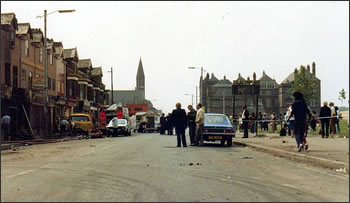
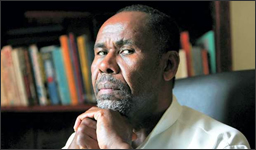
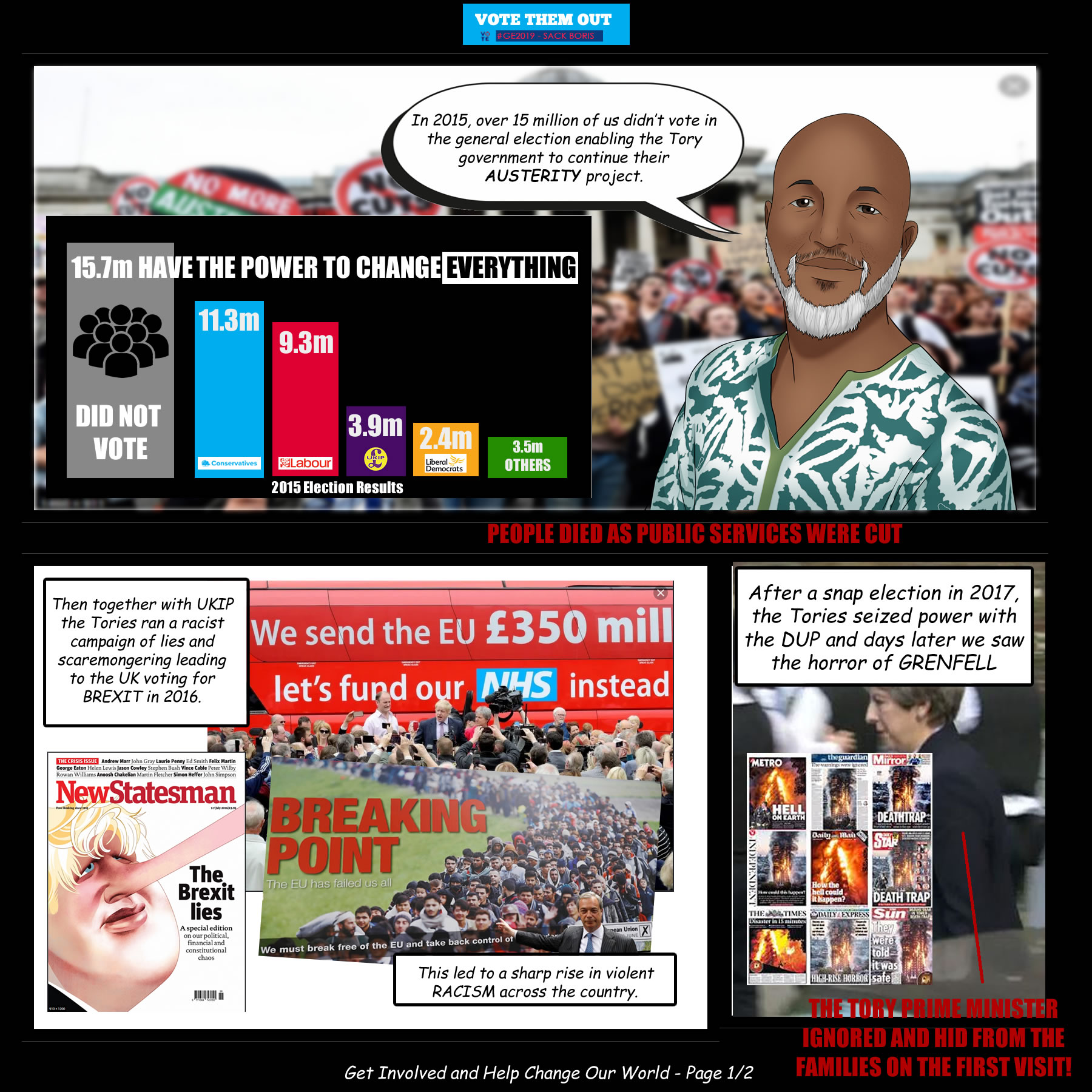

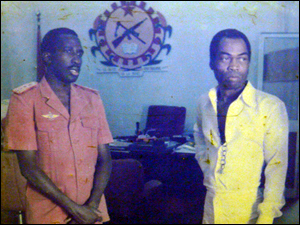
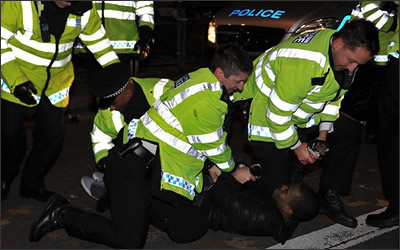

Get involved and help change our world